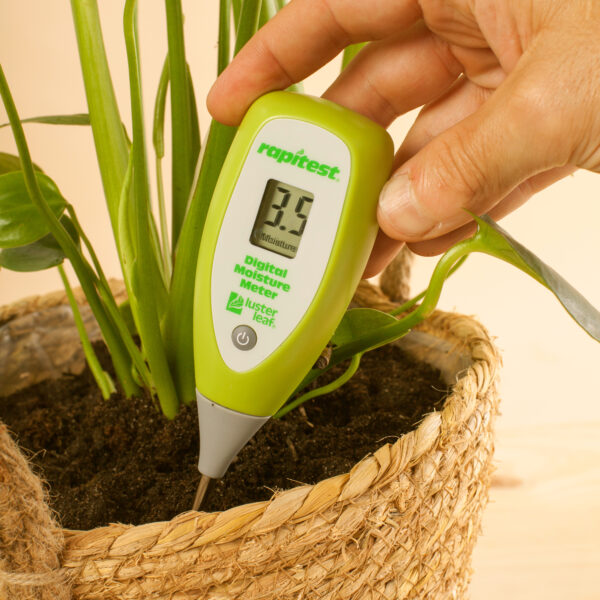Exactly How a Moisture Meter Can Enhance Your Construction Tasks and Protect Against Damage
Exactly How a Moisture Meter Can Enhance Your Construction Tasks and Protect Against Damage
Blog Article
The Ultimate Overview to Dampness Meters: A Comprehensive Overview and Just How They Can Conserve You Money
In the realm of structure maintenance, building, and various markets, the significance of precisely gauging dampness degrees can not be overstated. Dampness meters offer as important tools in identifying and keeping track of moisture material in materials, aiding in stopping costly problems and ensuring the quality of products. Comprehending the nuances of various sorts of wetness meters, their applications, and the possible cost-saving benefits they offer can be a game-changer for services and experts alike. Uncovering just how these tools can not just enhance procedures but likewise add to monetary savings is a trip worth starting.
Kinds Of Moisture Meters
One usual kind is the pin-type moisture meter, which measures the electric resistance in between two pins put right into a product. Pinless dampness meters, on the other hand, use electromagnetic sensing unit plates to scan a bigger area without causing damages to the material's surface.

In addition, there are likewise specialized dampness meters made for particular materials like hay, grain, or dirt. These meters provide precise moisture readings tailored to the one-of-a-kind buildings of the product being examined. Infrared wetness meters determine the thermal properties of a material to identify its wetness web content non-invasively, making them helpful for applications where pin or pinless meters may not be appropriate. Understanding the different types of dampness meters readily available can aid industries select the most suitable tool for their specific moisture measurement demands.

Advantages of Using Moisture Meters
Wetness meters use vital benefits in accurately checking and examining dampness degrees in varied products and atmospheres (Moisture Meter). Among the key benefits of making use of dampness meters is the avoidance of potential damage triggered by excess moisture. By identifying and addressing high dampness degrees beforehand, moisture meters assist to avoid mold and mildew development, rot, and structural damage in structures, conserving both time and cash on repairs. Additionally, wetness meters aid in ensuring the quality of materials during building or manufacturing processes. By accurately gauging moisture content, these tools aid preserve the integrity of timber, drywall, concrete, and various other products, minimizing the threat of failings or flaws.
Moreover, using moisture meters can lead to enhanced power performance. By recognizing areas with high wetness degrees, such as leaks or poor insulation, adjustments can be made to enhance energy preservation and lower energy prices. In agricultural setups, dampness meters play an essential function in enhancing plant yields by enabling farmers to monitor soil wetness degrees and make informed watering decisions. Overall, the advantages of utilizing moisture meters span throughout numerous markets, click now giving affordable services and promoting better quality assurance methods.
Just How to Choose the Right Wetness Meter
When choosing a dampness meter, it's necessary to make certain that the meter is ideal for the specific product you will be screening. Different materials have varying electrical properties that can affect moisture analyses, so choosing a meter created for your material is vital for exact results. By thoroughly reviewing these factors, you can pick a wetness meter that satisfies your demands and supplies exact wetness dimensions for your jobs.
Proper Methods for Wetness Meter Use

Price Financial Savings With Moisture Meter Applications
Exactly how can the calculated usage of wetness meters lead to substantial expense financial savings across numerous industries? In the farming market, dampness meters help in establishing the optimum time for collecting crops, preventing excess or over-drying dampness that can impact the last product's top quality.
Likewise, in construction, moisture meters help prevent expensive damages by discovering moisture degrees in structure products, such as wood or concrete, which can lead to structural issues otherwise dealt with promptly. By determining problem areas beforehand, service providers can take restorative measures to prevent considerable repair work or substitutes, eventually saving time and money.
Moreover, in the food processing industry, moisture meters are necessary for keeping track of product high quality and making certain conformity with security regulations. By accurately determining wetness web content in food items, suppliers can avoid wasting, maintain quality, and decrease waste, resulting in significant expense financial savings. On the whole, the critical application of moisture meters is an important top article financial investment that can cause considerable expense reductions and enhanced efficiency across numerous markets.
Conclusion
To conclude, moisture meters are valuable devices for spotting and measuring dampness levels in various products. By making use of the right dampness meter and complying with Recommended Site correct methods, customers can properly protect against expensive problems triggered by excess wetness. Purchasing a high quality dampness meter can cause considerable price savings in the future by identifying possible issues at an early stage and enabling punctual remediation. Eventually, dampness meters are crucial tools for keeping the stability and longevity of materials and structures.
Wetness meters serve as vital devices in spotting and keeping track of moisture web content in products, aiding in protecting against expensive problems and guaranteeing the high quality of items. Infrared moisture meters measure the thermal properties of a product to determine its dampness content non-invasively, making them useful for applications where pin or pinless meters may not be suitable.Wetness meters supply important advantages in accurately evaluating and monitoring wetness levels in diverse materials and atmospheres. In farming settings, wetness meters play an essential role in enhancing crop returns by making it possible for farmers to check soil dampness levels and make informed irrigation decisions.In conclusion, wetness meters are important devices for determining and identifying moisture degrees in numerous products.
Report this page